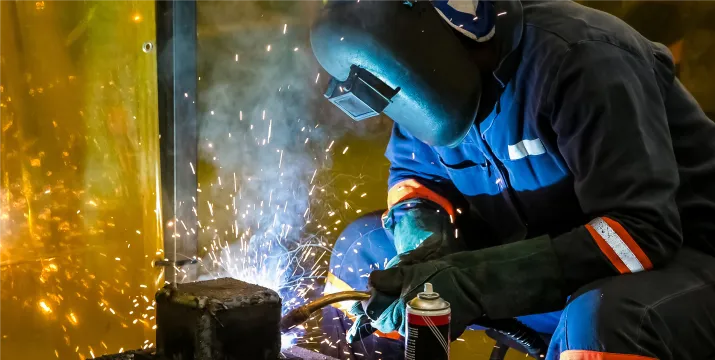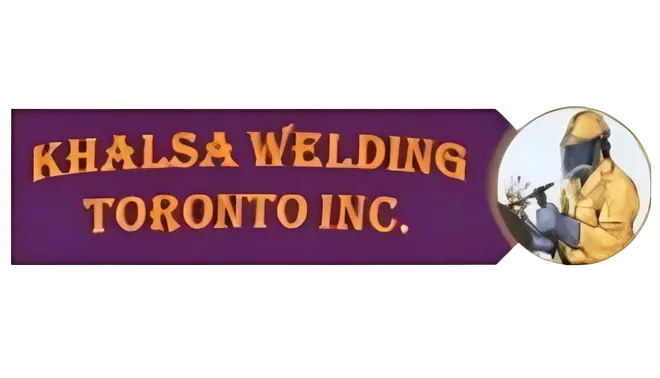
How Long Does A Typical Welding Service Take?
The typical welding service duration can vary widely based on the nature and scale of the project. Minor repairs or simple welding tasks might be completed in minutes to a few hours. Medium-sized projects involving structural work or fabrication could take a day or two. Larger-scale endeavors, such as structural welding for buildings or bridges, may extend to several days, weeks, or even months.
Custom fabrication jobs and specialized welding can also significantly impact the timeline. The specifics of the project, including materials, thickness, welding technique, and tools for mobile welding use along with the skill and efficiency of the welder, all contribute to the overall time taken for welding service.

Factors Affecting Welding Duration
Various factors influence the duration of a welding project, and a detailed understanding of these aspects can help in welding time estimation more accurately
1. Project Complexity
The typical welding project length and complexity are significant factors. Simple repairs or routine welding tasks typically take less time than complex projects such as custom fabrications, intricate designs, or large structural welding.
2. Type Of Welding Process
Different welding processes have varying speeds and efficiencies. For example, MIG welding is generally faster than TIG welding. The choice of the welding process depends on factors such as material type, thickness, and the desired quality of the weld.
3. Material Type And Thickness
The type and thickness of the materials being welded play a crucial role. Thicker materials require more time and heat to achieve proper penetration and fusion. Certain materials may also have specific welding considerations, affecting the overall process.
4. Welder Skill And Experience
The skill level and experience of the welder are paramount in deciding the average welding service time. Certified welders are essential for quality and safety as well. A highly skilled welder with experience in specific welding techniques and materials can work more efficiently, produce higher-quality welds, and potentially reduce the overall project duration.
5.Preparation And Setup
Adequate preparation is essential for a successful welding project. This includes cleaning and prepping the materials, setting up the welding equipment, and ensuring safety measures are in place. Larger or more intricate projects may require additional time for preparation and, hence, have longer welding project duration.
6. Project Size And Scale
The overall size and scale of the project influence the time required. Minor repairs or individual welds may be completed relatively quickly, while extensive projects, such as sizable structural welding or pipeline installations, can take considerable time.
7. Automation And Technology
The use of automated or robotic welding systems can significantly impact project duration. While these systems can perform high-speed, precise welding, they may require additional time for programming and setup. You can know about mobile welding setups with advanced technology that significantly affect welding process duration.
8. Quality Requirements
The desired quality standards and welding service efficiency for the welds can affect the time needed. Projects with stringent quality requirements may involve additional steps, inspections, and testing, extending the overall duration.
9. Environmental Conditions
External factors such as weather conditions and environmental constraints can influence the welding process. Adverse weather may necessitate additional precautions or adjustments, potentially impacting the project timeline.
10. Inspection And Testing
Projects with specific quality standards may require additional time for inspection and testing. Non-destructive testing methods or other quality assurance procedures contribute to the project duration.
11. Coordination And Project Management
Large projects like welding for construction projects involving multiple welders or teams may require careful coordination and project management. Efficient organization and communication are essential to minimizing delays and ensuring smooth workflow.
Consulting with experienced welders or welding engineers can help assess these variables and provide a more accurate estimate based on the specific details of the project at hand.
Unleash Efficiency With Precision Welding Anytime Anywhere
Khalsa Welding Toronto understands the value of efficiency in your projects. That’s why we bring our mobile welding services directly to your location. Get The Mobile Welding Services to unleash your metalwork’s potential without a fixed workshop’s limitations. Whether emergency repairs or planned projects, our mobile welding team is committed to delivering excellence on your terms.
Call Us today at +(416) 809-5335 to schedule your mobile welding service and experience welding without boundaries.
RECENT POST
- 6 Key Factors To Consider For Proper Mechanical Piping Insulation
- 5 Types Of Welding Joints You Should Know About
- 7 Common Types Of Welding Services
- How Long Does A Typical Welding Service Take?
- Emergency Welding Repairs: How Mobile Welders Save the Day
- How To Maintain And Extend The Lifespan Of Welded Structures

